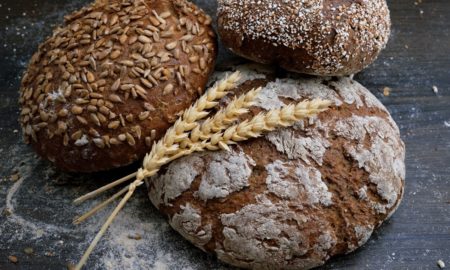The Gut-Health Connection
There's no doubt about it. Most of our health problems start in our gut. You see, our digestive system does much more than just help us to digest and eliminate food – though those are important functions, too. Our gut, through our microbiome, the unique collection of gut flora that inhabits our intestines, influences our immunity, mental health, detoxification, and hormones. The lining of our gut is a major protective barrier between the foods we eat and microorganisms to which we are exposed, and our immune system, which influences our reactions to foods, and whether we develop food sensitivities, inflammatory conditions, and chronic diseases.
What is Leaky Gut Syndrome (LGS)?
Your gut is lined with a row of cells called enterocytes. Between these cells are tight junctions. Their job is to regulate what gets across the intestinal lining and into your general system. While the gut is naturally permeable to nutrients, which are small molecules, so that you can get your nutrition from your food, when your gut barrier and microbiome get weakened from chronic exposure to foods and medications that irritate your gut, or when the good bacteria get out of balance from antibiotics, these tight junctions develop gaps, and you can develop a leaky gut, or leaky gut syndrome (LGS). When this happens, fragments of protein and bacteria that aren't supposed to can get into your system. Your body recognizes these are foreign invaders and responds by producing antibodies that mount an immune system reaction against these molecules. Your body goes on red alert to react to many triggers in your environment.
Signs That You Have Leaky Gut Syndrome
- You struggle with digestive problems including gas, bloating, loose stools, or irritable bowel syndrome (IBS).
- You have food intolerances or food sensitivities.
- You suffer from seasonal allergies.
- You have eczema, skin rashes, acne, or other chronic skin problems.
- You have an autoimmune condition.
- You're tired all the time.
- You struggle with anxiety, depression, or erratic moods.
- You have chronic fatigue syndrome or fibromyalgia.
- You've been diagnosed with yeast (Candida) overgrowth or SIBO (small intestinal bacterial overgrowth).
- You can't lose weight in spite of an excellent diet.
- Your joints ache and swell.
- You have trouble concentrating, with your memory, or notice other cognitive changes.
How to Heal Your Leaky Gut
Healing leaky gut syndrome is not hard to do, and it is the most important first step in treating most chronic conditions.
To simplify the process of healing the gut, I teach my patients the 4R program. Depending on the severity of your symptoms, it can take from about 4-6 weeks to 6 months to fully heal your gut. Symptom improvement is your best guide to resolution.
Remove
Take out what ails you. Start with an Elimination Diet for 2 weeks. Remove all of the triggers that irritate your gut including foods, medications (of course check with your doctor on this), and ideally, stress, too! If you have been diagnosed with Candida (yeast) in the past, or have a lot of gas, bloating, and either loose stools or constipation, you might want to do this phase in conjunction with a functional medicine doctor who can provide comprehensive stool testing to see if this is still a problem and who can work with you on supplements (or sometimes medications), to eliminate the yeast overgrowth.
Replace
Your gut lining and your gut flora go hand in hand when it comes to gut health. So many of us are low in the building blocks needed for both that our ancestors naturally got in their diets, especially ample fiber and good quality fats. Make sure to add 6 to 8 servings of veggies and fruits to your daily diet, at least 1 serving of whole grains, and 2 to 4 TBS of olive oil daily, nuts and seeds, and optimally, 1/2 and avocado to replace what's missing from most of our diets.
Reinoculate
Add in a good quality daily probiotic to restore your gut flora with a minimum of 10 billion CFUs in each dose, and a good range of Lactobacillus and Bifidobacter species. Fermented foods such as miso, sauerkraut or kimchee, and pickled vegetables are also powerful and important additions to your daily diet. If you tolerate dairy, organic yogurt is also great for gut health; if you don't, you can consider non-dairy yogurts (i..e, cashew milk or coconut milk yogurt) if you enjoy them.
Repair
The following supplements can be taken for 3 to 6 months to help to repair and restore the intestinal lining:
- Turmeric, aloe vera, marshmallow root, and DGL licorice (aloe and licorice are not for internal use during pregnancy; these are fine for children) are some of the most effective herbs for healing the gut lining. They are best taken in capsule or extract form, though tumeric can also be added to foods. DGL licorice is available as chewable lozenges and thus may be the simplest one to give to kids.
- Zinc: 5-10 mg/day for children 4-7 years, 10-20 mg/day for children to age 12, 25-40 mg/day for older children and adults
- An antioxidant supplement containing vitamins A and carotenoids, C, E, and selenium. These are often found in a multivitamin. Pregnant women should get these from their prenatal vitamin only
- L-Glutamine Powder: 5-10 gm of powder twice daily for one month. (Much less for kids but talk with your child’s doctor before using and don’t supplement in pregnancy).
Doing the 4R program, especially following an elimination diet, can help you to heal many of the symptoms of leaky gut syndrome – 4ever.



